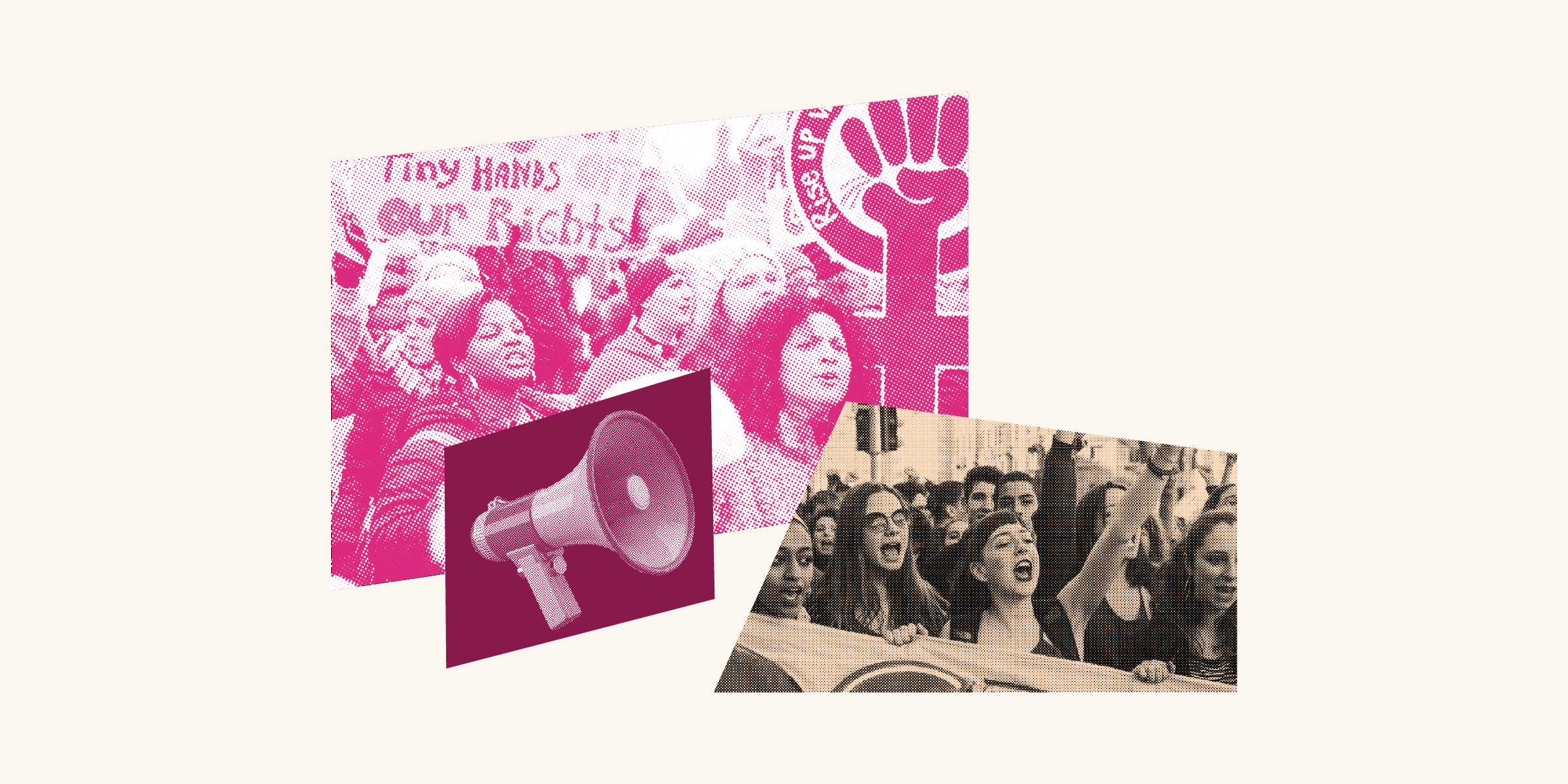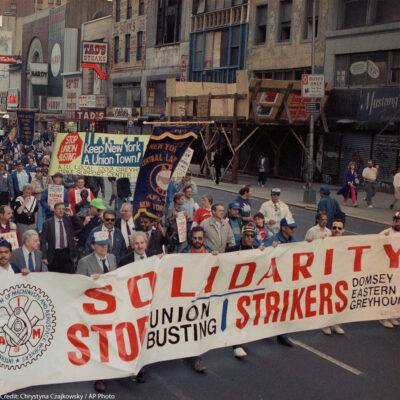Pregnancy and Parenting Discrimination
The ACLU works in courts, legislatures, and communities to defend and preserve the individual rights and liberties that the Constitution and the laws of the United States guarantee everyone in this country.

The Latest
-


Civil Rights Groups Tell Federal Appeals Court that Protections for Pregnant Workers Cover Abortion Care
-


Civil Rights Groups Submit Brief in Support of Landmark Pregnant Workers Fairness Act
-

The Resurgence of Labor Strikes and Union Power
-

Don't Let the Math Distract You: Together, We Can Fight Algorithmic Injustice
Explore More
What We're Focused On
-

Breastfeeding Discrimination
The ACLU works in courts, legislatures, and communities to defend and preserve the individual rights and liberties that the Constitution and the laws of the United States guarantee everyone in this country.
-

Pregnancy Discrimination in the Workplace
The ACLU works in courts, legislatures, and communities to defend and preserve the individual rights and liberties that the Constitution and the laws of the United States guarantee everyone in this country.
What's at Stake
Women are too often fired from or forced out of jobs when their employers learn that they are pregnant or when they return to work after having a baby. Many employers fire pregnant workers on the spot, particularly in low-wage sectors dominated by women. Others force pregnant workers off the job by refusing to grant them the same kinds of temporary modifications—such as light duty assignments—that are routinely granted to other workers who need them.
Firing women because they are pregnant, or treating pregnant workers worse than other workers who are also temporarily unable to perform some aspects of a job, has been illegal since 1978, when Congress enacted the Pregnancy Discrimination Act. But employers still do it, and, unfortunately, some courts have upheld these practices when employers come up with a “pregnancy-blind” reason to leave pregnant workers out in the cold. When women are pushed out of the workplace, they lose important income and benefits, contributing to a gender wealth gap between men and women.
Some women are fired because their employers do not believe that unmarried women should become pregnant. But religious institutions and other employers with religious or moral objections of this kind do not have a free pass to discriminate against women who choose to become pregnant.
After they give birth, women workers are the targets of discrimination if they need to pump breast milk to remain on the job. And both women and men who engage in caretaking suffer workplace discrimination based on gender stereotypes.
The ACLU has long fought back against these discriminatory practices in the courts and legislatures. Women have been fighting the stereotype that they should be at home instead of at work for decades. More than 35 years after the Pregnancy Discrimination Act was enacted, it’s time for employers to realize they can’t force pregnant and parenting workers off the job.
Women are too often fired from or forced out of jobs when their employers learn that they are pregnant or when they return to work after having a baby. Many employers fire pregnant workers on the spot, particularly in low-wage sectors dominated by women. Others force pregnant workers off the job by refusing to grant them the same kinds of temporary modifications—such as light duty assignments—that are routinely granted to other workers who need them.
Firing women because they are pregnant, or treating pregnant workers worse than other workers who are also temporarily unable to perform some aspects of a job, has been illegal since 1978, when Congress enacted the Pregnancy Discrimination Act. But employers still do it, and, unfortunately, some courts have upheld these practices when employers come up with a “pregnancy-blind” reason to leave pregnant workers out in the cold. When women are pushed out of the workplace, they lose important income and benefits, contributing to a gender wealth gap between men and women.
Some women are fired because their employers do not believe that unmarried women should become pregnant. But religious institutions and other employers with religious or moral objections of this kind do not have a free pass to discriminate against women who choose to become pregnant.
After they give birth, women workers are the targets of discrimination if they need to pump breast milk to remain on the job. And both women and men who engage in caretaking suffer workplace discrimination based on gender stereotypes.
The ACLU has long fought back against these discriminatory practices in the courts and legislatures. Women have been fighting the stereotype that they should be at home instead of at work for decades. More than 35 years after the Pregnancy Discrimination Act was enacted, it’s time for employers to realize they can’t force pregnant and parenting workers off the job.